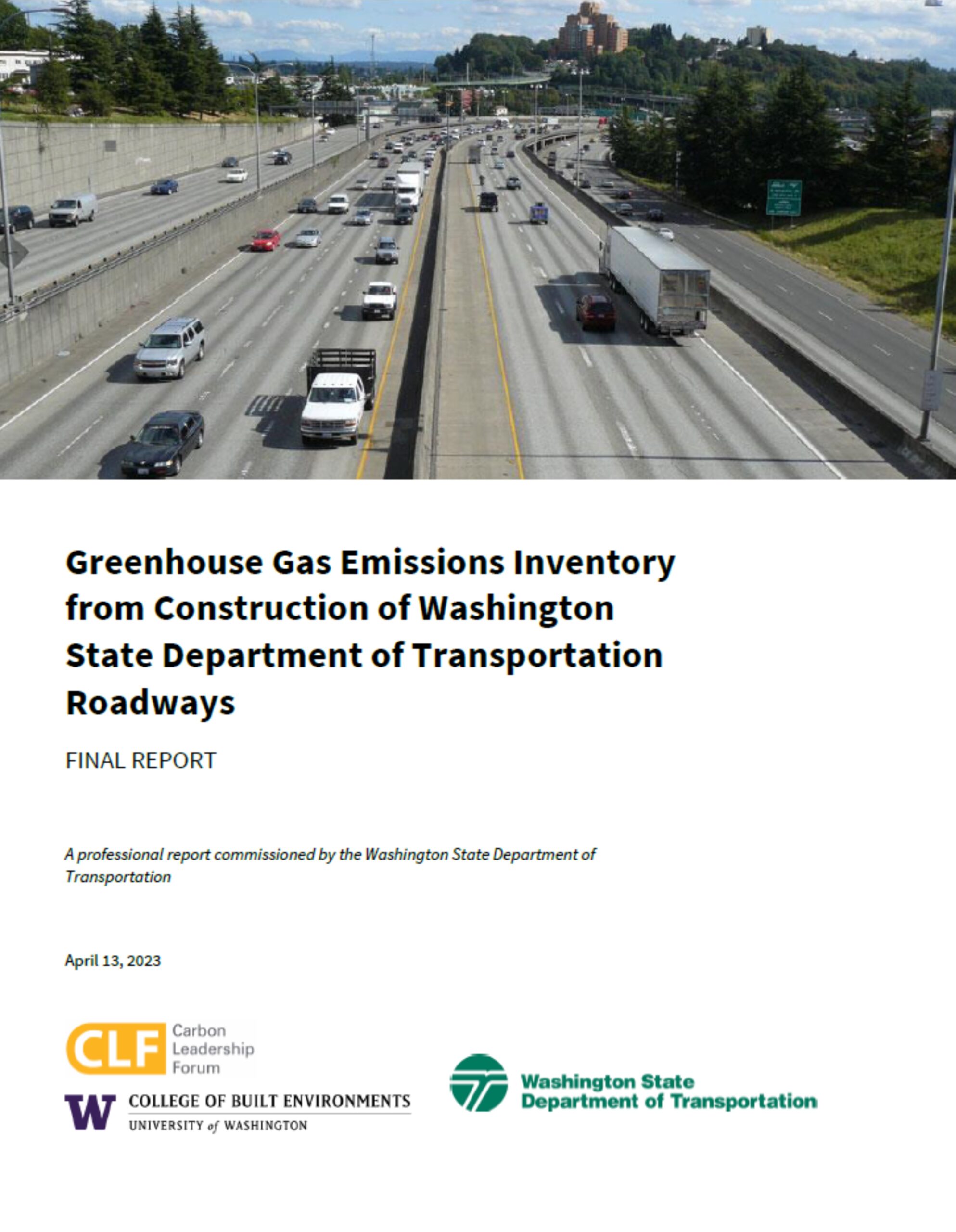The Carbon Leadership Forum has released a report that inventories the embodied carbon from materials used to build roadways operated by the Washington State Department of Transportation (WSDOT). In this project, CLF developed 1) embodied carbon baselines reflecting WSDOT’s current construction stock from the past 5 years, 2) carbon reduction targets, and 3) recommendations including decarbonization scenarios tailored to WSDOT’s roadway construction.
Recent emphasis on actions to reduce large-scale greenhouse gas (GHG) emissions has pushed most state departments of transportation (DOTs) to develop carbon accounting practices compatible with their current standard data collection and storage practices. In particular, with the recently passed Buy Clean Acts in California, Colorado, and Oregon and the recently proposed Buy Clean and Buy Fair Washington Act, common construction materials such as cement concrete, steel, and asphalt are now under special attention. Once accurate and reliable accounting of GHG emissions is established, strategies can be formed that would help mitigate the adverse environmental impacts of materials utilized by state DOTs.
This project, in collaboration with the Washington State Department of Transportation (WSDOT), is an attempt to perform a life cycle assessment (LCA) on some of the agency-wide operations that emit GHGs. To date, WSDOT has not conducted a comprehensive assessment on the embodied carbon of its construction material usage (i.e., upstream Scope 3 emissions inventory) with most previous carbon accounting practices being focused on Scope 1 and Scope 2 emissions (i.e., the carbon footprint of direct and indirect energy usage).
The lead CLF research engineer who authored the report was Milad Ashtiani, with support from Meghan Lewis, Monica Huang, and CLF Executive Director Kate Simonen.
